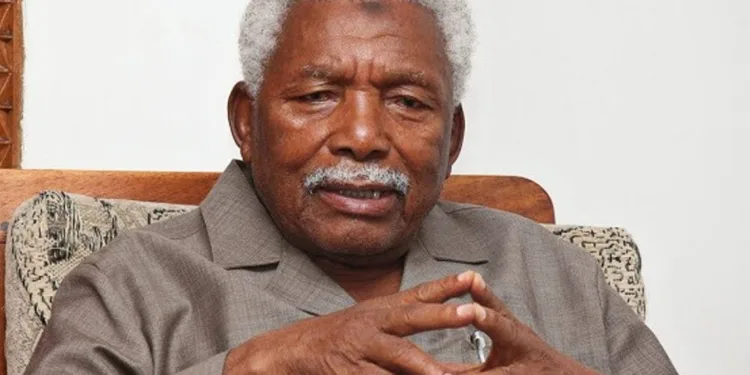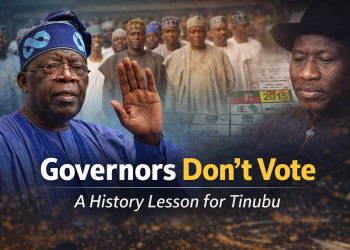Ali Hassan Mwinyi, the former Tanzanian President, who recently passed away, will ever be remembered in the annals of Tanzanian for his transformative leadership, particularly as it relates to his economic policies that transformed the country’s fortune.
As the second President of Tanzania, serving from 1985 to 1995, Mwinyi’s tenure marked a significant departure from the socialist economic policies of his predecessor, Julius Nyerere. Embracing a new era of economic liberalization, the former’s bold initiatives laid the foundation for Tanzania’s transition to a free-market economy, reshaping the nation’s socio-economic landscape and paving the way for future prosperity.
Born on May 8, 1925, in the coastal region of Kivure, Mwinyi rose through the ranks of Tanzanian politics, exhibiting a steadfast commitment to public service and national development. His ascension to the presidency in 1985 coincided with a period of profound socio-economic challenges for Tanzania. The country was grappling with the aftermath of Nyerere’s socialist policies, characterized by centralized planning, state ownership of industries, and a lackluster business environment stifled by bureaucracy and inefficiency.
Read More: Enabulele Says Fintechs Will Flourish As Nigeria Approves Crypto Investments And Trading
Mwinyi recognized the urgent need for reform and set out to revitalize Tanzania’s economy through a series of visionary policies aimed at fostering private sector growth and attracting foreign investment. At the heart of his economic agenda was the promotion of market-oriented reforms designed to unleash the entrepreneurial spirit of the Tanzanian people and harness the forces of free enterprise for sustainable development.
Central to Mwinyi’s economic vision was the implementation of structural adjustment programs in collaboration with international financial institutions such as the World Bank and the International Monetary Fund (IMF). These programs aimed to streamline government expenditure, reduce trade barriers, and create an enabling environment for private sector participation. Despite facing resistance from entrenched interests and ideological adversaries, Mwinyi remained resolute in his commitment to charting a new course for Tanzania’s economic future.
One of the cornerstones of Mwinyi’s economic reforms was the privatization of state-owned enterprises, a process aimed at transferring ownership and management of key industries from the public to the private sector. By divesting state assets and promoting competition, Mwinyi sought to inject vitality into Tanzania’s economy, improve efficiency, and stimulate innovation across various sectors. From telecommunications to agriculture, privatization initiatives breathed new life into previously moribund industries, fostering dynamic growth and job creation.
Also, Mwinyi recognized the importance of liberalizing trade and investment policies to integrate Tanzania into the global economy and spur export-led growth. Through trade liberalization measures, such as tariff reductions and the simplification of customs procedures, Mwinyi sought to enhance Tanzania’s competitiveness in the international marketplace, attract foreign direct investment, and diversify the country’s export base beyond traditional commodities.
Mwinyi’s Path to Liberating Tanzania
In the 1980s, Tanzania found itself entrenched in economic stagnation, burdened by the legacy of socialist policies, and dependent on foreign aid to sustain its struggling economy. As Mwinyi recognized the urgent need for bold and decisive action to liberate Tanzania from the shackles of dependency and chart a new course toward sustainable development. Through a series of visionary economic reforms, Mwinyi laid the groundwork for Tanzania’s emergence as a dynamic and self-reliant player in the global economy.
Mwinyi inherited a challenging economic landscape characterized by centralized planning, state control of industries, and bloated bureaucracies inherited from his predecessor. While the socialist policies of the past had led to inefficiency, low productivity, and a lack of incentive for private sector growth, Tanzania’s heavy reliance on foreign aid had created a culture of dependency and undermined the country’s ability to chart its economic destiny.
Recognizing the imperative for change, Mwinyi embarked on a bold agenda of economic reform aimed at dismantling the barriers to growth, unleashing the entrepreneurial spirit of the Tanzanian people, and fostering a more conducive environment for investment and innovation.
Central to Mwinyi’s economic reforms was the privatization of state-owned enterprises. By transferring ownership and management of key industries from the public to the private sector, Mwinyi sought to improve efficiency, stimulate competition, and unlock the latent potential of Tanzania’s economy. Privatization initiatives spanned various sectors, including telecommunications, banking, agriculture, and manufacturing, injecting vitality into previously stagnant industries and paving the way for dynamic growth and job creation.
Mwinyi prioritized the liberalization of trade and investment policies to integrate Tanzania into the global economy and enhance its competitiveness on the world stage. By reducing trade barriers, streamlining customs procedures, and promoting export-led growth strategies, Mwinyi sought to diversify Tanzania’s export base, attract foreign investment, and reduce its dependence on aid.
In addition to promoting macroeconomic stability and structural reforms, Mwinyi recognized the importance of empowering marginalized communities and promoting grassroots entrepreneurship as engines of economic growth. He implemented policies aimed at expanding access to credit, technical assistance, and market opportunities for small and medium-sized enterprises (SMEs), particularly in rural areas where poverty and unemployment were rampant.
Mwinyi prioritized investments in human capital development, recognizing education and skills training as essential drivers of long-term economic prosperity. By expanding access to quality education, vocational training, and healthcare services, Mwinyi sought to equip Tanzanians with the knowledge and skills needed to thrive in an increasingly competitive global economy. His economic reforms were not without challenges or criticisms. Critics raised concerns about the pace of privatization, transparency in the process, and the potential for widening income inequality. Moreover, the transition to a free-market economy exposed Tanzania to the risks of global market fluctuations and external shocks.
By Pamela Aghedo










